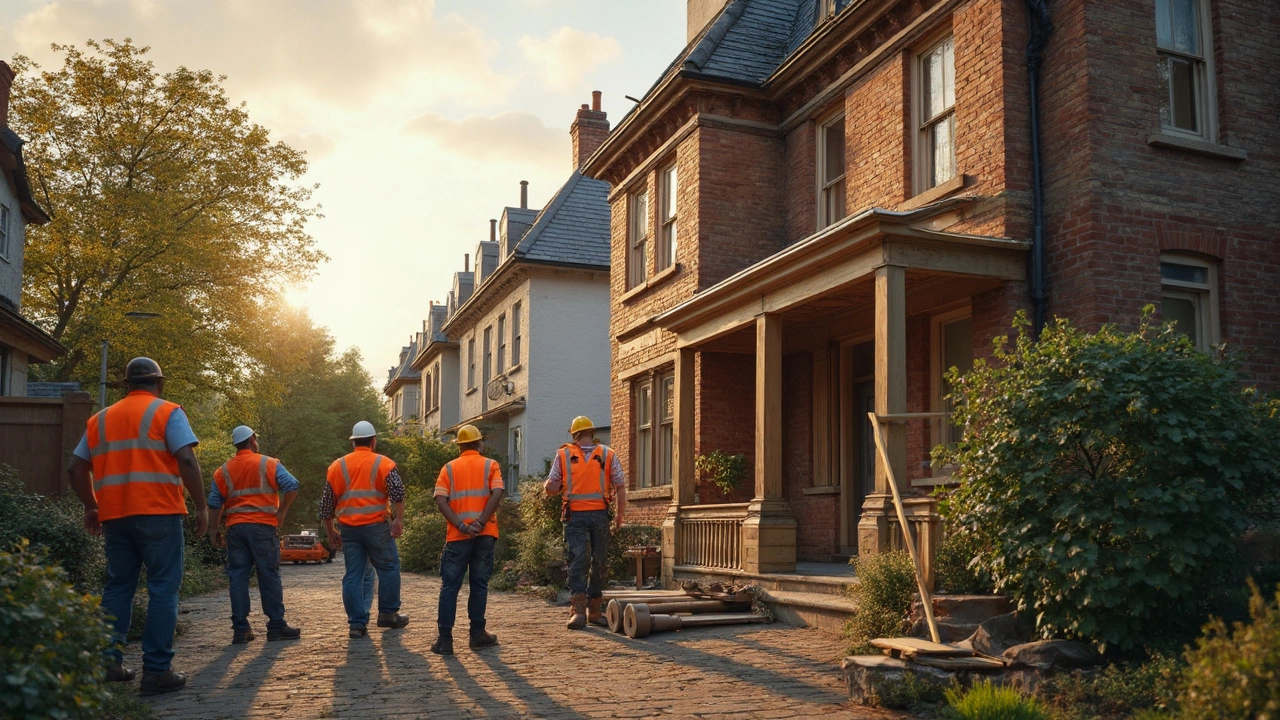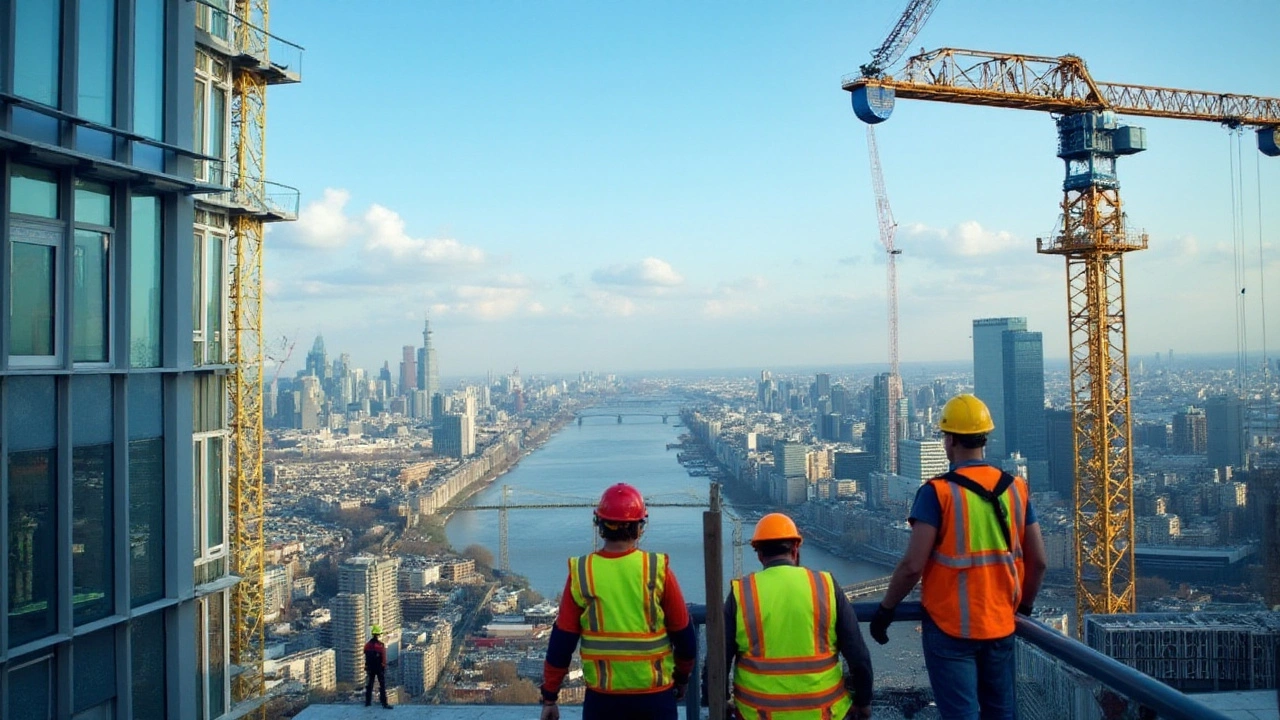Building Contractors: What They Do and How to Choose the Right One
Thinking about a renovation or a new build? The first name you’ll hear is "building contractor". They’re the people who turn plans into walls, floors, roofs and everything in between. In the UK, a good contractor handles everything from getting planning permission to finishing the last coat of paint.
Why does it matter? A solid contractor can save you time, money and a lot of headaches. A bad one can cause delays, cost overruns, and even safety issues. Below we break down the core services, common red flags, and simple ways to pick a reliable pro.
Core Services You’ll Get From a Building Contractor
Most contractors cover a set of core services. First up is structural work – think foundations, walls, and roof frames. If you’re buying a new home, the contractor will coordinate concrete pours, steel reinforcement and any underpinning needed for weak ground.
Next is interior fit‑out. This includes plastering, flooring, tiling and installing doors and windows. If you’ve seen the latest living‑room flooring trends – engineered hardwood or luxury vinyl plank – a contractor will source and lay those materials correctly.
Specialist tasks like mold remediation also fall under their umbrella. Mold can appear in new builds if moisture gets trapped, and a qualified contractor will identify the source, remove contaminated material, and treat the area to prevent recurrence.
Roofing is another big piece. Whether you’re looking at a modest shingle roof or a high‑spec slate roof, the contractor will manage removal, repair, and installation. They’ll also help you understand the true cost – a £30,000 roof isn’t always a rip‑off, but you need to know where the money goes.
How to Spot a Good Contractor and Avoid Pitfalls
Start with credentials. A reputable contractor should have a valid CSCS card, public liability insurance and references from recent projects. Don’t rely on a slick website alone – ask for a site visit on a current job.
Quotes matter. Ask for a detailed, itemised estimate. Look for clear breakdowns for labour, materials, waste removal and any subcontractor fees. If something feels vague, push for clarification.Look out for red flags: overly low bids, pressure to sign a contract on the spot, or a refusal to show proof of insurance. These often signal corners being cut, which can end up costing you later.
Communication is key. A contractor who responds quickly to emails, explains the schedule and gives realistic timelines will keep your project on track. Ask how they handle changes – a solid written change‑order process protects both parties.
Finally, check reviews and ask for case studies. A contractor who’s tackled foundation cracks, roof replacements, or mold issues similar to yours is a safer bet.In short, hiring a building contractor isn’t just about picking the cheapest price. It’s about matching expertise, reliability and clear communication to your project’s needs. Use the tips above, ask the right questions, and you’ll be on your way to a smooth build or remodel.
Why Is a Builder Called a Contractor? Unpacking the Real Meaning
- Gavin Whitaker
- |
- |
- 0
Ever wonder why people call builders 'contractors'? This article breaks down where the term comes from and what it really means in today's building world. You'll learn what sets a contractor apart from a typical builder, what they actually do on the job, and why it’s more than just swinging a hammer. We’ll look at some fun facts, common myths, and tips so you can tell the difference the next time you’re hiring for a project. If you’re curious about the nuts and bolts behind this job title, you’re in the right place.
View moreWhat is a Tier 1 Contractor? Straightforward Facts for Anyone in Building
- Gavin Whitaker
- |
- |
- 0
A Tier 1 contractor isn’t just a fancy label—they’re the big players handling major construction projects that shape skylines. This article breaks down exactly what sets Tier 1 contractors apart, why they’re trusted on massive jobs, how their responsibilities stack up, and what hiring one really means. You’ll also get tips for working with these industry giants and facts that might surprise you. If you want to understand the real world of top-level construction, you’re in the right place.
View moreWhy People Choose to Hire Contractors
- Gavin Whitaker
- |
- |
- 0
Hiring contractors is becoming increasingly popular for home renovations and construction projects. Contractors bring expertise, efficiency, and access to resources that individuals might not have. They manage the project from start to finish, ensuring quality work and compliance with regulations. Discover why working with contractors can save you time and stress in your building endeavors.
View moreUnderstanding the Role and Definition of Building Contractors
- Gavin Whitaker
- |
- |
- 0
In the realm of construction, the term 'contractor' often comes up, but who exactly is considered a contractor? This article delves into the specifics of what defines a building contractor, their roles, and responsibilities. It provides insights into how contractors influence the success of construction projects and what clients should know when hiring one. By understanding these facets, readers can make informed decisions when engaging with contractors for their building projects.
View moreUnderstanding Tier 1, 2, and 3 Building Contractors: A Comprehensive Guide
- Gavin Whitaker
- |
- |
- 0
Building contractors are categorized into Tier 1, 2, and 3, representing different levels of expertise, project scope, and resources. Tier 1 contractors handle large-scale projects, typically with significant budgets, while Tier 2 contractors manage mid-sized projects with specialized capabilities. Tier 3 contractors usually focus on smaller, local projects. Understanding these distinctions helps clients and contractors align expectations and resources for their construction needs.
View more



